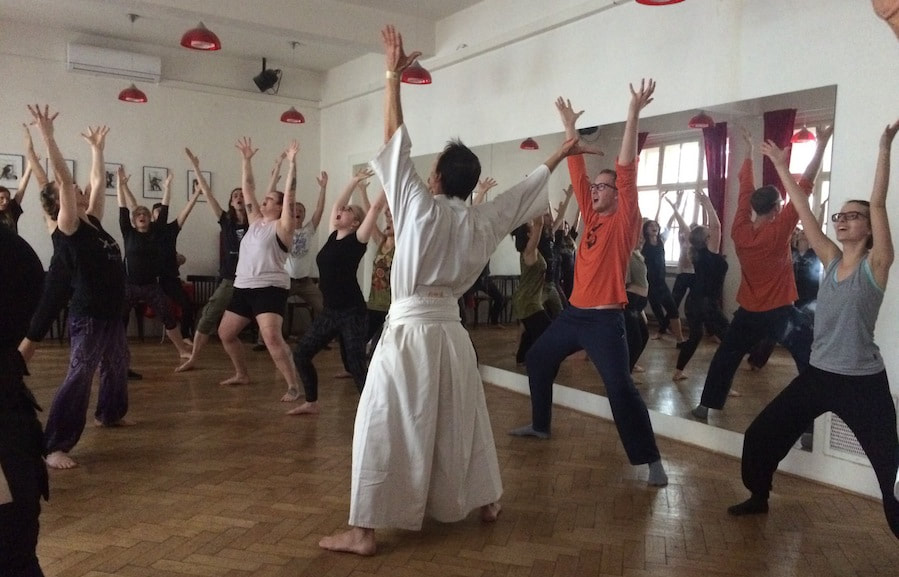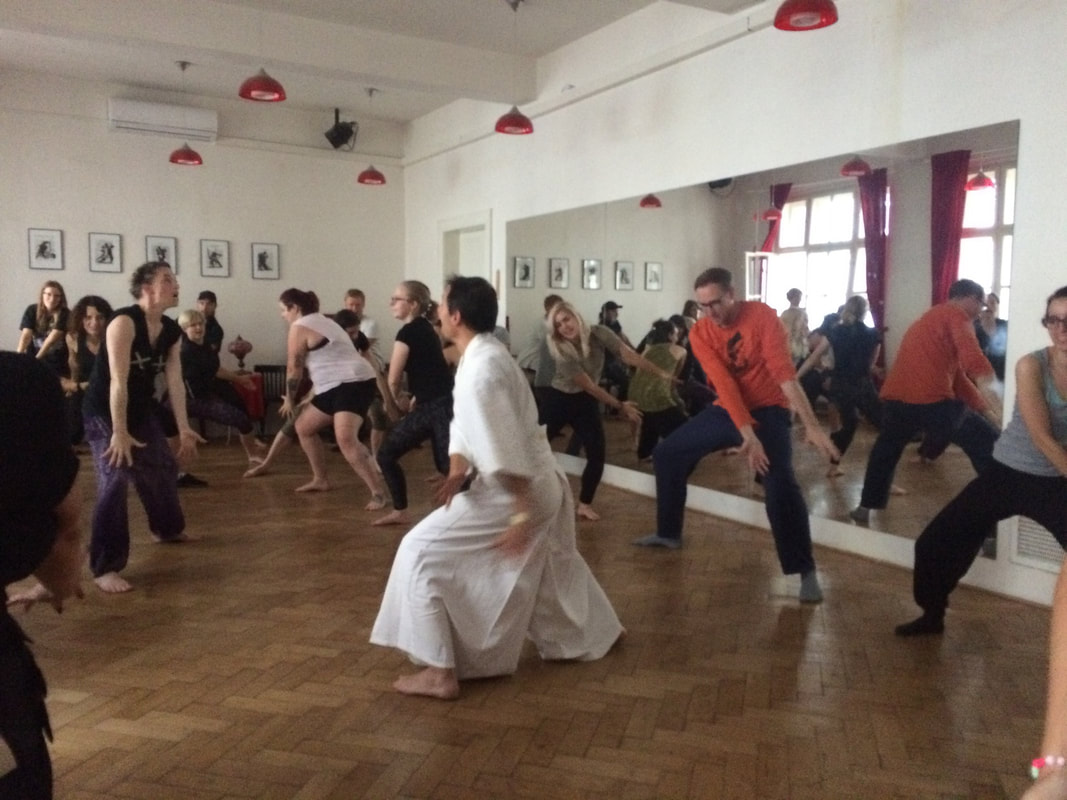|
1/6/2020 0 Comments Why I cried / Proč jsem brečel
0 Comments
12/4/2019 2 Comments letting your voice outAbove: David leading Shintaido practice before Amanda Palmer's concert in Bexhill-on-Sea UK. Photo Michael McCominsky These photos from the Shintaido practices during Amanda Palmer's No Intermission tour show the beginning of an amazing several months in fall 2019. An old friend, Amanda Palmer, was on tour (she’s a musician), and suggested we organize a Shintaido practice in the afternoon before her concert. Her fans are amazing beautiful people who showed up and put heart, mind, enthusiasm, and sweat into a new situation, knowing pretty much nothing about Shintaido or David Franklin. This act of trust made me feel so honored. And it’s almost visible in the pics how they let their voices out. This is what I found myself saying to everyone: “Your voice doesn’t have to be perfect. It can be loud or quiet, it doesn’t matter. It doesn’t matter exactly what it sounds like to others. It’s about the feeling of letting your voice come out.” (And the previous): David leading Shintaido practice before Amanda Palmer's concert in Prague. Photo Tereza Soldatová This is surely one of the unique points about Shintaido. Letting your voice come out and radiate from your body without being much concerned about how it sounds is both physically and psychologically liberating. In this regard, the way we use our voices in Shintaido is quite different than singing: other than making the vowel sounds “A / E / I / O / U,” there are not many limitations. Most of the time we use our voices to communicate verbal information, or we sing. In both cases, there is usually a concern about what is “right” and “wrong” — we can say the wrong words, be understood or misunderstood; we can sing well or off-tune. Then there is the territory beyond vocal sounds that are socially acceptable, which we can explore in Shintaido. The voice is like a sonic fingerprint: the human voice is quite individual, and no matter what sound you make, it will always be uniquely yours. When you don’t worry about what it will sound like and just let your voice out, it is almost like letting your individuality and identity come out and imprint itself onto the world. There is a truth to this that is not only metaphorical: when you use your voice, the molecules of the air around you, the physical objects within earshot of your voice, do in fact vibrate in a unique pattern that is representative of your individual “voiceprint.” In the arts, including visual art, music, and writing — and in the social world generally — we can talk about “finding one’s voice,” meaning discovering a way of expressing yourself that has nothing to do with being egotistical (or trying too hard to be zen-like and non-egotistical). I think it just means recognizing the aspects of your expression that an undeniable part of who you are, your mental and physical condition, your history and experiences that form who you are. This is how I understand “authenticity,” and it declares itself in the fact that we are all authentic beings in this universe. Sorry (not) to get philosophical, but my interpretation of the contemporary angst is that it is partly panic based on solid facts about our relationship with “nature” as we commonly understand it (the natural environment, you know — the one that we’re polluting, damaging, and playing violently risky games with). While feelings of anxiety and panic about the global environmental crisis are logical and maybe appropriate, “panic” might not be an adaptive, effective, or practical response in a crisis — as anyone with experience in martial arts can tell you.
Shintaido, however is not a martial art. You are not required to “keep your cool” at all times in Shintaido practice. There are parts of the practice, in fact, when the best thing you can do is “lose your cool,” let your hair down, look up at the sky (or imagine you have x-ray vision and can see the sky through whatever non-sky roof, ceiling, or other obstacle is above you), scream your lungs out, and let whatever feelings you have come out with no expectations of what they will be. If you feel shy, then “yell” quietly in a shy little voice. That’s you, too. Having no expectations about what will come out, I guarantee that whatever sonic expression comes out, it will be yours. You are a unique combination of flesh and blood, made from the dust of stars. Your body, your mind, everything around you, and everything you are capable of experiencing, every thought, every feeling, grows from the universe like apples grow from the branch of an apple tree. You are not an alien visiting “your life.” If you have feelings about that, using your voice can be a great way to ventilate them. Sometimes it’s hard to imagine such mystical ideas like “let your inner light shine” or vague almost abstract “energies,” “qi / ki,” etc. But opening our mouths, letting the air flow out over the vocal chords, and making a vibration that is uniquely ours — most of us can do that. |
Autor / AuthorDavid Franklin, AB, Dipl. Fine Arts, MA, is a 4th-level Shintaido instructor and is an award-winning video artist, filmmaker, and video producer, working also in graphic arts, performance, music, and sound art. ArchivesCategories |
Search by typing & pressing enter



 RSS Feed
RSS Feed
